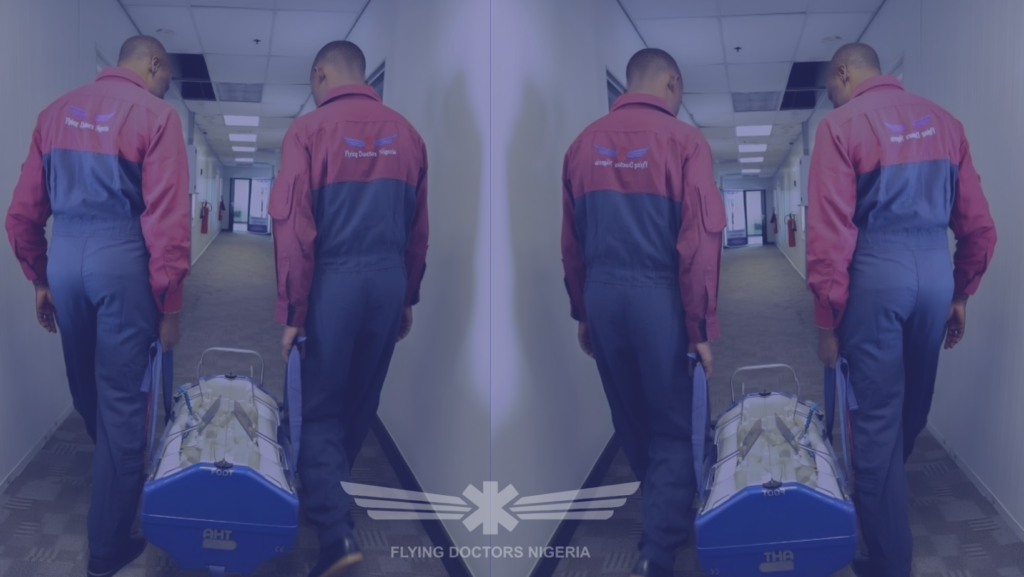
Recently, Flying Doctors Nigeria was contacted for the urgent transfer of a 3-month-old infant who had been diagnosed with Hypoxic Ischemic Encephalopathy (HIE) and intractable seizures. The infant had been receiving care at a secondary health facility in Saudi Arabia, but the critical nature of the case prompted the need to explore advanced pediatric neurocritical management available in the patient’s home country (India), necessitating the need for an immediate transfer.
Clinical Challenge
Hypoxic Ischemic Encephalopathy in neonates is a critical condition resulting from oxygen deprivation to the brain around the time of birth. In this case, the infant’s seizures had become less frequent but there were still significant concerns about worsening neurological injury.
The urgency of the situation was also compounded by:
- The infant’s fragile condition and high risk of rapid deterioration.
- Limited neonatal intensive care resources at the referring facility.
- The need for specialized neonatal transport equipment and a highly skilled retrieval team.
Response and Mobilization
Upon receiving the call, we immediately activated our Pediatric & Neonatal Retrieval Protocol. Within a short time frame, a dedicated air ambulance was prepared, equipped with:
- Neonatal transport incubator with integrated ventilator support.
- Pediatric seizure monitoring and management tools.
- Full resuscitation capability for neonatal emergencies although not to be used as DNR was in effect.
The medical team assigned to the mission included:
- A pediatric intensivist experienced in neonatal neurology.
- A flight nurse specialized in neonatal care.
In a bid to also ensure a safe and secure flight, our team had a detailed alignment with the management team to align on a comprehensive clinical management and logistics plan which was instrumental to ensuring a seamless operation.
In-Flight Management
The infant was carefully transferred from the referring hospital’s incubator to the flight incubator, with continuous EEG and vital sign monitoring. Pre-flight stabilization included optimizing oxygenation, ensuring adequate IV access, and administering a tailored seizure control regimen.
Adequate and close monitoring to ensure the continued stability of the patient was maintained by our medical team throughout the flight. Deliberate efforts were made to:
- Maintain normothermia and stable oxygen saturation throughout and
- Provision of continuous communication with the receiving hospital to prepare for immediate NICU admission.
Outcome
The flight was uneventful and the patient was safely handed over to the Pediatric Neurology Intensive Care Unit at the receiving Hospital in India, with all relevant clinical documentation and a detailed in-transit care report.
Key Lessons
- Speed and Preparedness Save Lives: Rapid activation of specialized pediatric retrieval protocols significantly improves outcomes in neonatal neurological emergencies.
- Specialized Equipment is Non-Negotiable: The availability of an advanced neonatal transport incubator and seizure monitoring tools was crucial in this mission.
- Continuity of Care Matters: Ongoing communication between the referring, transport, and receiving teams ensured no lapse in patient management.
Impact
This mission reinforced Flying Doctors Nigeria’s capability to handle high-acuity neonatal transfers under challenging circumstances, ensuring that even the most vulnerable patients can access the care they need without delay.
For more information about our global air ambulance service, contact us at: emergency@flyingdoctorsnigeria.com or call +234 700FLYINGDRS/7003594464377.
